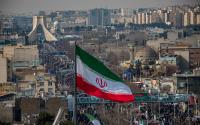The surprising results in India's elections which returned Sonia Gandhi's Congress party to power have focused attention on the deep and lasting problems within the world's largest democracy, problems that have been swept under the carpet by the rhetoric of Atal Bihari Vajpayee and his BJP. The India aggressively sold by Vajpayee was the India of information technology, the stock market and outsourced call centres.
But, as Vajpayee discovered, this is not the India of most Indians' experience. The BJP has presided over the economic polarisation of Indian society, and the Congress-led coalition inherits a country of stark differences. The one million employed in the IT sector is dwarfed by 40 million unemployed. Two-thirds of the population remain tied to agriculture for a living. Vajpayee's BJP has learnt that it is not enough to appeal to one sector of the still relatively small middle class.
This middle class, represented by the commentators in the country's media and officials of the BJP, have sneered loudly at Mrs Gandhi's political ambitions, suggesting that someone not born in India should not be in a position to lead the country.
Certainly, the Italian-born Mrs Gandhi, widow of Rajiv and now head of the Gandhi-Nehru dynasty which shaped the country, has much work to do. Brisk economic growth - between 5 and 8 per cent over the past five years - has not been sufficient to transform the lives of those living in poverty. Within a coalition which will include India's Left parties, among them the communists, there will inevitably be pressure for redistribution to combat destitution and for investment in areas likely to be less popular with the market (neglected irrigation schemes, for example). Fears of such a change of emphasis are already scaring the investors who have enriched the middle classes.
A Congress-led coalition will also have to negotiate the fragile peace of the cricket-brokered diplomacy between India and Pakistan at a time when many believe that a BJP - licking its wounds - might be tempted to abandon Vajpayee's more moderate leadership and revert to its sectarian anti-Muslim roots. A balance must be struck between wealth creation and the amelioration of devastating poverty.
Mrs Gandhi's opponents have condemned her as an outsider. Yet - in a land of entrenched interests and conflicting identities, including within her own party - being an outsider may turn out to be her strongest card as she mediates India's complex problems.
http://observer.guardian.co.uk/print/0,3858,4925217-102276,00.html






